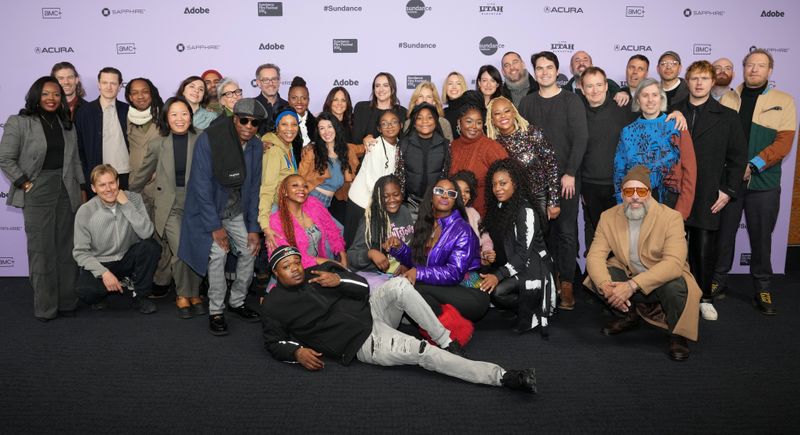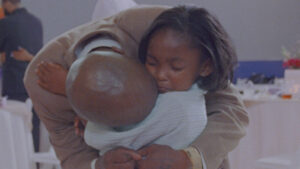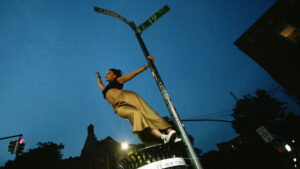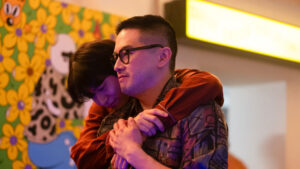(Photo by Suzanne Cordeiro/Shutterstock for Sundance Film Festival)
By Patty Consolazio
This film might hold the world record for speed tear-jerkers.
In one world, two dozen girls dress up in their finest; in another, their fathers step into borrowed suits. They’re coming together for a dance — a once-in-a-lifetime Daddy-Daughter Dance — at a Washington, D.C., jail, where the men are serving time.
Daughters follows four girls — Aubrey, Santana, Raziah, and Ja’Ana — as they cope with daily life separated from their dads; meanwhile, the men share their stories at group counseling sessions required in order to attend the dance.
This delicate, sometimes-painful, and inspiring film premiered January 22 at the 2024 Sundance Film Festival in the U.S. Documentary Competition, followed by a Q&A with directors Angela Patton and Natalie Rae. And Rae had a vision.
“I was gonna protect the girls, the fathers, and the community at all costs. It wasn’t going to be another jail story. It wasn’t going to be another disappointment Black story. It was gonna be their story,” explains Patton.
Patton and Rae surprised the premiere audience with several key people involved in the film, including Chad, the men’s group facilitator; the girls; and a representative group of their mothers and fathers.
Santana’s father Mark, who is now home with his family, was greeted with a standing ovation at the premiere. Clearly moved, he brushes it off, laughing, “I don’t need no tissue.” Then he continues, “I just wanna say, man, when it first started, it wasn’t even about the cameras because Chad made us feel we had a safe place to open up about things we weren’t used to opening up about… about our personal life.
“I couldn’t stay outta prison for more than 90 days, I come home, I’m back locked up in 90 days,” he continues. “Now it’s been six years [that I’ve been out]. And hopefully the next person can feel the same way I feel about my kids. And not being there. I’m there, and I hope the next person sees this… and he feels like, you know man, I gotta step this up.”
One hard truth: Some of these men are doing hard time, and sometimes the time frame for their return is uncertain. One mom stresses that fathers can always play a role, no matter what.
“Even when fathers are incarcerated, they can still be fathers, said Sharida Lewis, Raziah’s mom. “And that’s something that my husband always knew. And he always has done that wherever he is. And so I want that to be showcased, that it’s not all broken relationships… Some good men are behind the walls, and they still are maintaining their fatherhood.”
The film ends with a message that 95 percent of the men who have participated in this program have not returned to prison.
Clearly, the creation of this film affected everyone in it. And now, Patton hopes, it affects those who see it.
“It’s not a film; it’s not a program,” she emphasizes. “It’s a movement. You’re supposed to change something after you see what you saw today.”
To see more of the magic from the 2024 Festival, click here.







